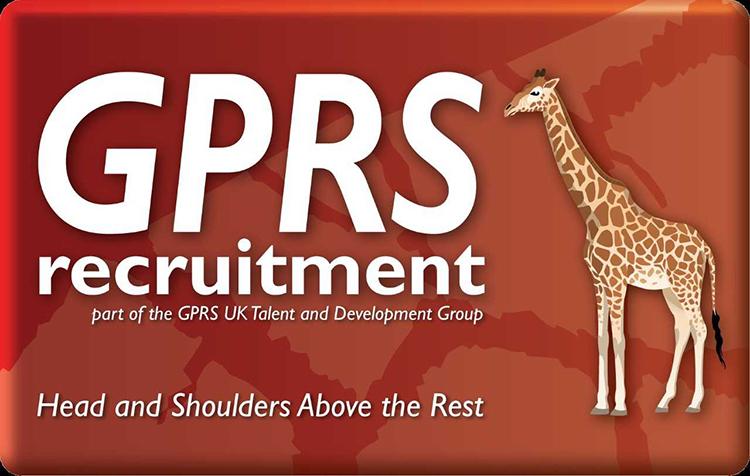Grow your own Talent

Do you want to employ the best Trainers & Tutors? Then why not grow your own?
Growing your own talent is bit like creating your own garden – it takes planning, preparation, choosing the right raw materials carefully, a bit of well applied effort and continual assessment of progress – but in the end you will have something of which you can be truly proud; nurtured potential. And of course in business terms, you will have home-grown talent that will drive better business performance. If you plant well, you can produce a fertile and flourishing talent garden!
As specialist work based learning and training recruiters we’ve been very busy due to the continued growth of the work based learning sector. Our clients are seizing the opportunities provided to them with both hands, by the creation of that thing loved by some and loathed by others – the Apprenticeship Levy. New contracts means our clients need to recruit additional Trainers and Assessors to support the new learners.
This has caused what is affectionately called, “The War for Talent.” Training Providers and Colleges are all vying for the same pool of candidates that is diminishing as each candidate is snapped up for yet another newly created position.
Everyone requires Trainers with occupational competence, everyone wants someone with training experience and qualifications, and everyone needs someone with Functional Skills Level 2 qualifications. Well not everyone…there are some that are very successfully “growing their own”.
At GPRS we have been growing our own Recruiters for many years and we have used those principles to help our clients to recruit the right raw materials so they can too, “grow their own” talent and inevitably have a richer pool of “home-grown” potential to draw from.
We are working closely with some clients who are recruiting candidates with the occupational competence within the skill set a would-be Trainer will need, backed up perhaps by a formal apprenticeship and industry specific qualifications. The right “raw materials” you might call it.
However, there are many other qualities a person needs to become a successful and effective Trainer other than these “raw materials” and a desire to become one.
Once we have established occupational competence, we look for people that have a background working with young people. Maybe they have managed or coached a youth football team or helped at a youth club. Maybe they are quite simply a parent of teenaged children. Either way, this is a strong indicator to us that they are comfortable engaging with young people.
A good Trainer has to get messages or learning points across and to this end they require clear, concise communication skills. For every candidate, we conduct a telephone interview, which takes on average 30 – 45 minutes. Research shows that it takes at least 20 minutes for a person’s defences to drop so that you can actually get to speak to the “real” person not just their interview facade.
Our team of professionally trained interviewers listen to how the candidate communicates over the phone. To assess this, we ask lots of competency based questions to really get them talking. The way a person answers can tell you a lot about them and their thought process: Do they answer directly? Do they beat about the bush and then give you no real answer at all?
If asked how they did something, do they tell you in a haphazard fashion, or do they list action points in a systematic way?
Some experience of training delivery is always useful, so we ask about any training they have delivered in the workplace, either formally or informally. Perhaps when someone joins the company it is their responsibility to show the new person how to do something. Were they involved within induction? Did they mentor anyone? It is interesting how many of the candidates we speak to have been highly regarded for their accumulated knowledge and expertise within the organisations for whom they have worked, and have been asked to pass that on.
An aspect of becoming a Trainer which would-be Trainers often aren’t aware, is the amount of administration that is required to track the progress of a learner and to gather evidence. Some prospective Trainers have a responsibility for administration as part of their current roles. Others do not and we often find with some candidates (particularly semi and skilled people) that the only form of written work (regardless of whether it be electronic or handwritten) that they have undertaken during their working lives, was when they studied for their apprenticeship, which could have been 20+ years ago, or completing weekly timesheets.
If you ask a candidate who is trying to secure a role within training, “would you be happy to complete all the necessary administration to track a learner’s progress?” they are likely to say yes, because they want the job. Therefore, we use another tactic and enquire about the administration they have to do as part of their current and recent job roles. We want to know how long it takes and whether it is done electronically or handwritten? We also ask how they feel about doing it. These questions allow us to assess if they are familiar with putting pen to paper or fingers to key pad.
As many of our clients are now using ePortfolio it is really important that candidates are computer literate. Most people have PCs at home and can surf the internet for holidays and bash out a quick email, but not everyone has previously written reports, regardless of whether they are long or short. Whilst they can talk quite happily over the phone, ask them to put something together in writing and they don’t know where to start.
Training Providers and Colleges that are willing to invest in the training and extra support that it takes to grow and nurture a new Trainer will inevitably need the individual to study for training and or assessing qualifications.
This has proved to be a major stumbling block when we have spoken to clients. They have frequently found that it had been so long since the prospective Trainer had done any form of academic study, that they lacked confidence and kept avoiding commencing the training. When questioned, it was quite simple: the last study they had undertaken was when they did their apprenticeship and they were genuinely worried that they wouldn’t pass any exams, and therefore make themselves look foolish in front of their employers and peers.
To counteract this, we ask questions about recent training courses the candidate may have taken or continual professional development they employer put them through. What form did it come in? How many days did it take? Did they sit a test at the end, or was their learning checked as they went along? Did they have to take any notes? Etc.
Candidates whose employers have invested in them with ongoing training are generally more confident about studying for a qualification than those who haven’t been given the opportunity to develop and update their skills through a variety of learning experiences.
Growing your own – it all sounds quite simple really doesn’t it? Except that these budding Trainers rarely apply for training jobs. You can’t search the job boards for “would-be Trainers”. And apart from their occupational competence, none of the raw materials we seek can be seen on paper i.e. their CVs, so the only way to decide if the candidate has the right qualities to become a Trainer, is to speak with them in depth and that all takes time.
Helen Wilson, Sales Director, GPRS
About Helen: Helen has over 20 years experience in recruitment and selection at all levels and across many, many sectors. If you would like to “Grow your Own,” please contact Helen Wilson, Sales Director at GPRS on 01785 430513.
 About GPRS Recruitment: GPRS Recruitment (Giraffe Permanent Recruitment Specialists Ltd) began in 2007 with the sole intention of providing an excellent standard of recruitment experience for both client and candidates, thus making us “head and shoulders above the rest”.
About GPRS Recruitment: GPRS Recruitment (Giraffe Permanent Recruitment Specialists Ltd) began in 2007 with the sole intention of providing an excellent standard of recruitment experience for both client and candidates, thus making us “head and shoulders above the rest”.
We believe that recruitment can, and therefore that it should, be done better. So, our service level remains exceptionally high, regardless of the side of the interview table you happen to be sitting at. You’ll get exactly the same superstar treatment. We don’t take advantage of our clients – because, quite simply, we want them to use us again and again. We don’t under-represent our candidates – because we want them to remember us when they’re sitting in the hiring manager’s chair.
We are pleased to announce that we passed our Recruitment & Employment Confederation (REC) Audit again this year. The REC Audited scheme is recognised as the gold-standard for recruitment businesses. The audit is comprehensive, and goes much further than just compliance; requiring agencies to operate best practice in areas such as customer service, staff development, diversity, and client management. GPRS is one of only 0.5% of recruitment companies in the UK to be successfully Quality Audited by the REC.
Awards include:
- REC Awards – Winner of Best People Development Company, and Best Client Experience.
- Great Place to Work – Ranked 13th nationally in the small business category.
- Recruiter Awards – Top 10 Best Newcomer.
In addition, we also retained our Investors in people (IIP) Gold in the new standard this year, leading to us being finalists for IIP Gold Employer of the Year 2017.











Responses